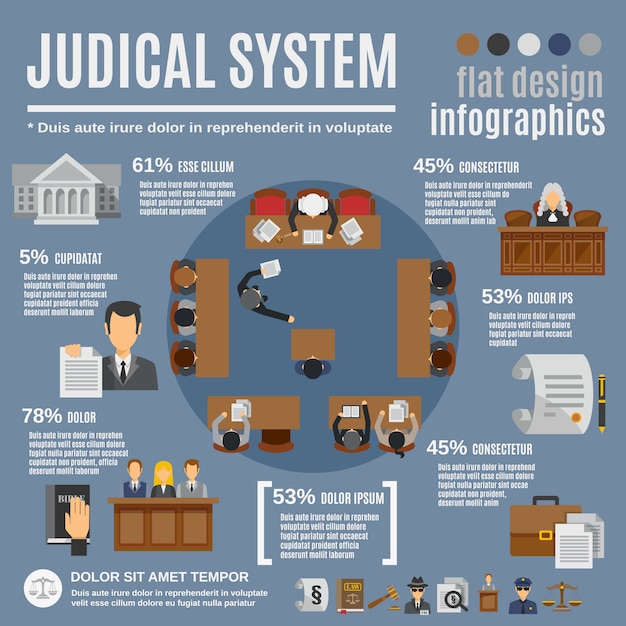What Happens Throughout A Criminal Test: A Step-By-Step Summary
What Happens Throughout A Criminal Test: A Step-By-Step Summary
Blog Article
Created By-Winters Clements
When you enter a criminal test, you might be amazed by the organized process that unfolds. All of it starts with court selection, where potential jurors are looked at for biases via a method called "voir dire." Afterwards, both sides offer their opening declarations, establishing the stage for the evidence and testimonies to follow. You'll see just how the prosecution and protection build their cases, however what happens next can dramatically affect the result. Recognizing these phases can disclose the complexities of justice, but there's more to discover regarding the defining moments that adhere to.
Court Choice Process
When it involves the court selection procedure, you're diving into a critical phase of a criminal test. This process, frequently called "voir dire," entails doubting prospective jurors to guarantee they're unbiased and capable of providing a reasonable decision.
You'll see both the prosecution and defense lawyer taking part proactively, each aiming to select jurors that line up with their situation's narrative.
During voir dire, you'll discover that attorneys ask questions about jurors' histories, ideas, and experiences. Their objective is to recognize any pre-existing predispositions that might influence a juror's decision. As a juror, you might feel a mix of nervousness and curiosity, but your honesty is vital.
After questioning, lawyers can test details jurors for reason if they think a juror can not continue to be unbiased. They can likewise make use of a minimal number of peremptory obstacles to reject jurors without stating a reason.
Trial Phases Explained
The phases of a criminal test play a crucial duty in guaranteeing a fair and structured procedure.
You'll initially come across the opening statements, where both the prosecution and protection outline their cases. This establishes the stage for what's ahead.
Next, the prosecution offers its proof and witnesses, intending to confirm the accused's guilt past an affordable uncertainty. You'll see straight exam adhered to by interrogation, enabling both sides to test today information.
After Suggested Web page relaxes its case, it's the protection's turn. They'll provide their evidence and witnesses, typically concentrating on creating sensible doubt. You'll see that the protection does not need to confirm innocence; they just require to challenge the prosecution's instance.
Once both sides have actually presented their debates, you'll listen to closing statements, where each celebration summarizes their case. This is critical as it reinforces their settings before the court ponders.
Throughout these stages, the judge guarantees that the test adheres to legal standards and that the rights of both celebrations are safeguarded.
Recognizing these phases will certainly help you appreciate the complexities associated with a criminal trial and the relevance of each step in the quest of justice.
Verdict and Sentencing
Nevertheless proof has actually existed and arguments made, the jury or judge delivers a judgment, identifying the defendant's shame or virtue. If you become part of the court, you'll deliberate with your fellow jurors, going over the proof and your perceptions. This procedure can take some time, as you'll intend to ensure everyone settles on the verdict based on the truths.
As soon as a judgment is gotten to, it's introduced in court. If the offender is found guilty, the next stage is sentencing. https://triblive.com/local/former-pittsburgh-defense-attorney-pleads-guilty-to-marijuana-distribution-charges-in-federal-court/ is when the court makes a decision the proper penalty. You might observe that different factors affect the sentence, such as the extent of the crime, the defendant's previous record, and any type of mitigating circumstances.
The court might enforce a variety of sentences, from fines and community service to jail time. Occasionally, the defense or prosecution can provide arguments relating to sentencing, trying to guide the court's choice.
If the accused is found not guilty, they're acquitted, and no punishment complies with. Keep in mind that a guilty judgment can frequently lead to appeals, where the accused might challenge the judgment or the sentence imposed.
Final thought
In a criminal test, you've seen exactly how essential each action is, from court option to the last judgment. You've complied with the prosecution and defense as they develop their situations, aiming to encourage the jury. As soon as consideration finishes up, the decision identifies the end result, and if the offender is found guilty, the sentencing stage starts. Recognizing these processes assists you value the complexities of the justice system and the relevance of each role in ensuring a reasonable test.
